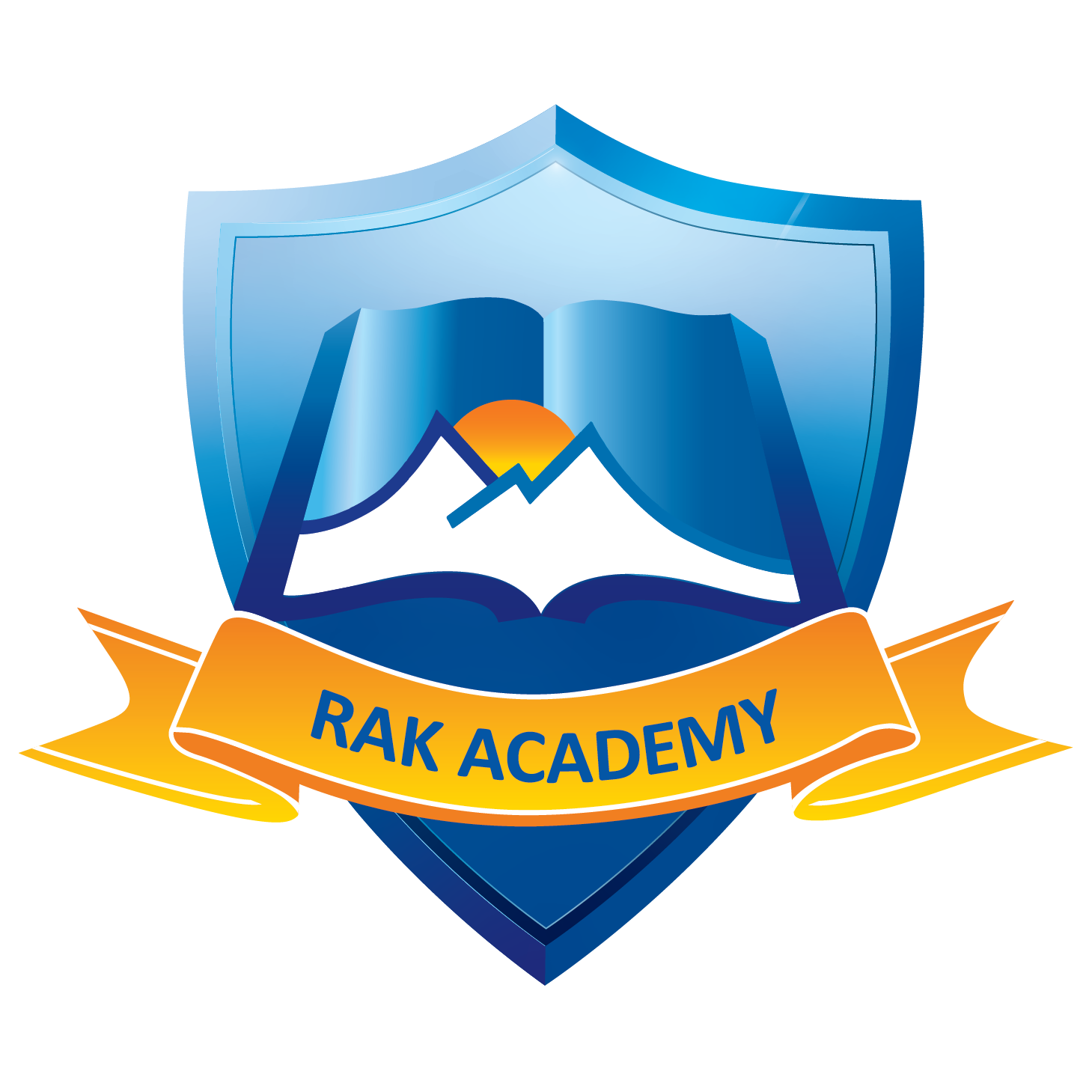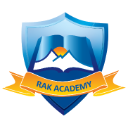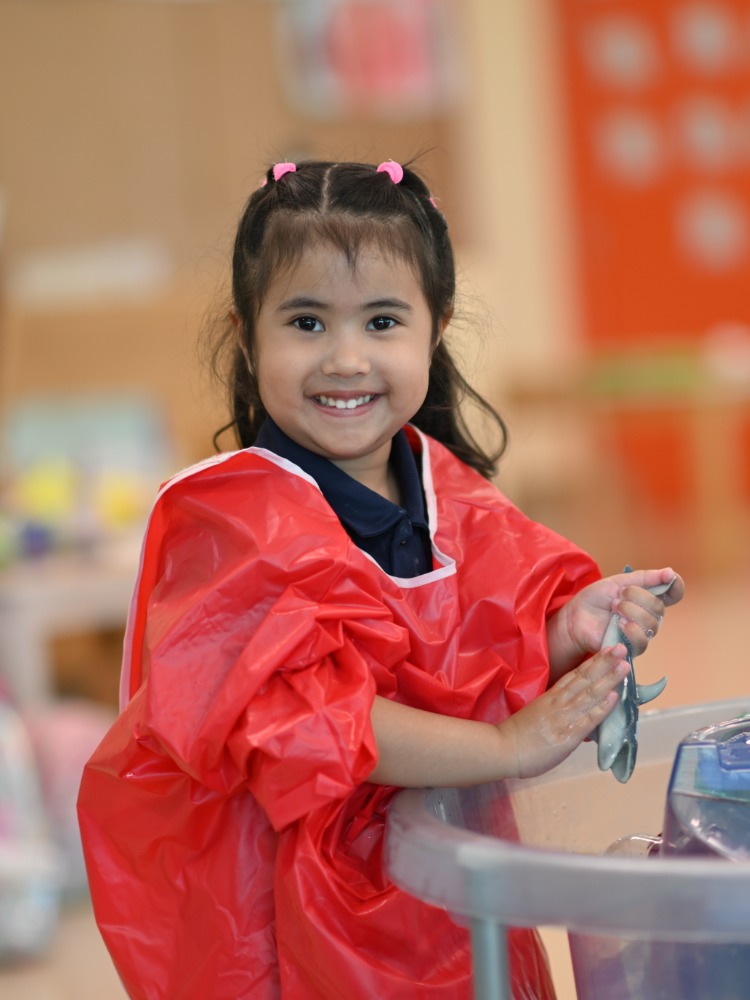Early Years
- Home
- Learning Pathways
- Early Years
Early Childhood Education
We place high importance on a positive and fun start to school for our youngest learners. Children enter our Pre-K program of learning at three years of age and we wrap care and comfort around each child as they begin their exciting learning journey of discovery at RAK Academy.
Our rich and nurturing bi-lingual (English/Arabic) environment provides many opportunities for development of concepts, language and new skills as children learn to socialize and gain confidence in small steps each day.
Pre-KG
Young learners develop positive home-school connections as part of their transition to school. RAK Academy places a strong emphasis on the link with home and parents, and our teachers focus on a positive transition to school for new to school learners. Children are naturally curious and seek solutions to problems. We provide a warm, nurturing and safe environemnt where our young learners are provided with hands-on experiences and opportunities to learn about things that apply to their lives.
Children are encouraged to experiment and seek answers in a supportive and resource-rich environment. Hands-on and fun learning is seen as being a vehicle through which key content, skills and attitudes can be developed.

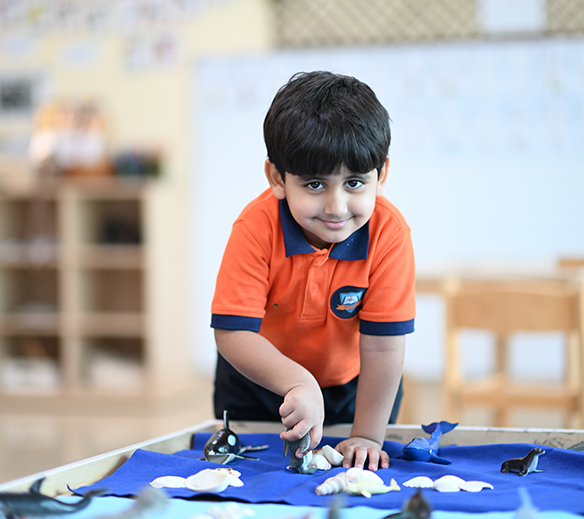


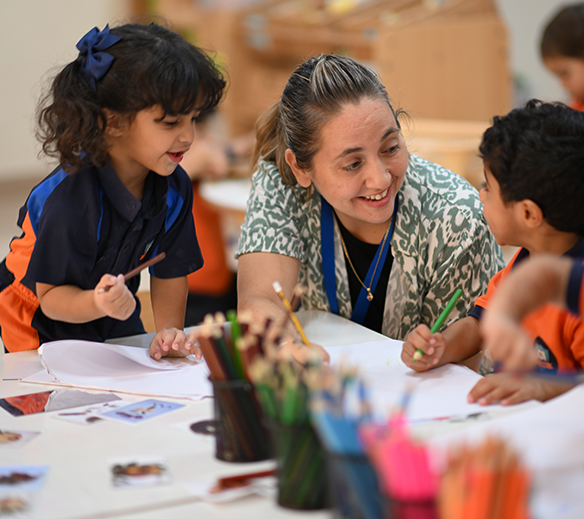

KG1
This is the time when children start to develop increasing independence. They are forming new friendships with their peers although their relationship with their primary caregivers is still crucial and our teachers ensure warmth and positivity is wrapped around children in KG1.
The curriculum focuses on reading, writing and mathematics to give students a positive foundation for their educational journey at RAK Academy. We also encourage pupils to stay physically active and learn skills such as balance and coordination as they develop gross and fine motor skills.
Arabic Language
Arabic skills include listening, speaking, reading, writing, viewing, and presenting in Arabic. Real experiences with vocabulary, conversation and early letter forming produce confident children who are able to communicate in both English and Arabic.
Personal, social, and emotional development
Strong social relations with others are crucial to children’s personal, social, and emotional development (PSED). They help children develop self-confidence, and by looking to adults as role models, they can develop a sense of self-worth; this is key to them taking care of themselves, for example eating healthily and personal grooming. By allowing children to interact with their peers, they learn how to resolve conflicts and form good friendships. These skills will enable them to form positive relationships throughout life, standing them in good stead for their personal and professional lives.
Physical Development
Physical activity is vital in children’s all-around development. Coordination and spatial awareness are just some of the skills that can be accomplished through physical activity and hand-eye coordination has been linked to early literacy. In addition, children can develop control and confidence by playing with a range of toys and simple puzzles, such as jigsaws.
Language (Reading and Writing)
We view a life-long love of reading as an invaluable asset. Reading consists of language comprehension and word reading. Children start to understand language and the world around them when parents share stories, rhymes, poems, and songs with them. Writing with children provides numerous opportunities to develop their literacy capacities. At RAK Academy (RAKA), we are proud to offer the dual-language approach, which broadens our students’ linguistic ability by developing language in both English and Arabic.
Mathematics
Developing strong numeracy skills is key. The curriculum offers an opportunity for children to develop their spatial reasoning skills and to not be afraid to make mistakes. It is important that children develop an interest in mathematics, look for patterns and relationships, spot connections, and talk about what they notice.
Understanding the World
This involves encouraging children to make sense of their world and their community. The more children get out and meet key members of society the more they can understand their world. Activities may include visiting parks, libraries and museums and meeting police officers, nurses, and firefighters. In addition, listening to a range of stories, non-fiction, rhymes, and poems will foster their understanding of our culturally, socially, technologically, and ecologically diverse world. As well as building important knowledge, this extends their familiarity with words that will support later reading comprehension. Through scientific principles, they will recognise basic cause-and-effect relationships. They will be aware of different perspectives, and they will show care and respect for themselves, other living things and the environment.
Expressive Arts and Design
Artistic expression helps develop imagination and creativity. Our pupils regularly engage with the arts and play with a wide range of media and materials. The quality and variety of what children see, hear, and participate in is crucial for developing their understanding, self-expression, vocabulary, and ability to communicate through the arts.
Dual-Language Approach
We offer a dual-language programme that promotes bilingualism consisting of Arabic and English. A bilingual person can communicate, think, and reflect in (at least) two different languages, even if one of the languages remains dominant. Bilingualism is designed to offer learners the chance to develop international mindedness, broaden their skills and capabilities and acquire the information needed to access other cultures.
